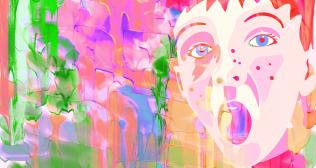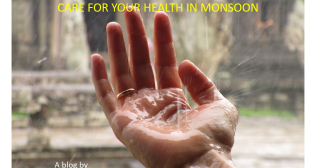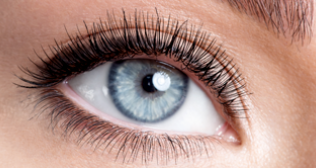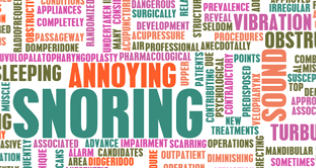}}drupal-data/images/blog-details.png)
ENT
Keep Calm If You Feel Anxiety
Dr. Atul Kumar Mittal Aug 13, 2015
Anxiety puts a lot of stress on the body and can absolutely manifest with physical and sometimes very dramatic symptoms. Over the years, various terms have been used to refer to symptoms that are generated by psychological stress or other factors. Psychosomatic disorder is a frequently used term and has come to mean as a disease which involves both mind (psyche) and body (soma). To an extent, most diseases are psychosomatic.
Psychosomatic disorders such as tinnitus, acute hearing loss, attacks of dizziness, globus syndrome, dysphagia, voice disorders and many more are quite common in ear, nose and throat medicine. They are mostly caused by a number of factors, although the bio-psycho-social aspect does play an important role.
TINNITUS
Hearing sounds where no external source is present. Buzzing or ringing sounds are perceived by the patient in one or both ears. This is best explained as a psychophysiological disorder under consideration of psychological and social aspects. The harm done to the quality of life can be quite considerable and the illness is accompanied by a lot of anxiety, depression and trouble concentrating and sleeping. Patients feel both cognitively and emotionally afflicted.
HARDNESS OF HEARING AND DEAFNESS
Extreme loss of hearing or deafness, whether acquired or from birth, represents a massive stroke of fate for people. They break with social contacts and are isolated out of bitterness and/or depression. Their fellow human beings doubt their intellectual capabilities and social incompetence. This may lead to aggressive behaviour, mistrust and paranoia.
VERTIGO
Vertigo is a subjectively experienced sensation of balance disorder both in physical and/or psychological regard. In general medicine dizziness is the main symptom and psychophysiological accompaniment to stress, depression and anxiety. So also anxiety can cause dizziness symptoms. Assessment of psychiatric and somatic symptoms should accompany, not follow, otologic evaluation of dizziness. Lack of coping strategies and dysfunctional cognitions can lead to persistence of anxiety and with it, the associated symptoms of dizziness.
GLOBUS HYSTERICUS
It is simply a feeling of ‘lump in the throat’ and does not in any way mean that a person is hysterical. When we suffer from anxiety, our body constantly stimulates our sympathetic nervous system. This leads to an increased heart rate, breathing rate, and muscle tension, and in some people that muscle tension can cause the throat to feel inflammation, described as a lump in the throat. Frequent swallowing or drying of the throat caused by anxiety or other strong emotions can also produce this sensation. It is imperative to rule out organic causes. Gastro-esophageal reflux disease (GERD) should be taken into account and ruling out of any malign disease.
RHINITIS
The burden of persistent rhinitis (common cold) symptoms affects quality of life in allergic individuals, decreasing daytime arousal, cognition, mood and overall social functioning. Stress can lead to an increase in respiratory infections and reduction in immune response to viral or bacterial infections, resulting in increased susceptibility to common cold illnesses. Main symptoms are running nose, blocked nose and frequent sneezing. Furthermore, those with more flares have greater negative mood.
DYSPHAGIA
Dysphagia or difficulty in swallowing is most common in times of emotional stress and anxiety. The problem may arise only after an organically plausible swallowing disorder such as tonsillitis that persists even after the primary illness has healed. So much so, that it can develop into a fear of swallowing or phagophobia i.e. inability to ingest solid foods or liquids.
CHOKED AIRWAYS
Laryngeal obstructions cause fear and restlessness. A stuffy nose is generally assumed to hamper intellectual functions and to influence the patients’ temper mainly by impairing normal sleep and secondly by slight anoxia (deficiency of oxygen).
HEADACHE
This symptom has many causes including various ENT diseases. It is commonly known that patient’s psychology and mental factors play an important part in its genesis and progress. Migraine headache is a classic example.
Diagnosis is complex because there is an unfortunate stigma attached to the perception that our brains can cause physical symptoms. Outcomes of such analysis are hampered by the difficulty in communicating the diagnosis to patients. The doctor will determine the best treatment for anxiety depending on the symptoms.
PSYCHOSOMATIC DISORDERS SUCH AS TINNITUS, ACUTE HEARING LOSS, ATTACKS OF DIZZINESS, GLOBUS SYNDROME, DYSPHAGIA, VOICE DISORDERS AND MANY MORE ARE QUITE COMMON IN EAR, NOSE AND THROAT MEDICINE.
Over the years, various terms have been used to refer to symptoms that are generated by psychological stress or other factors. Psychosomatic disorder is a frequently used term and has come to mean as a disease which involves both mind (psyche) and body (soma). To an extent, most diseases are psychosomatic.
Psychosomatic disorders such as tinnitus, acute hearing loss, attacks of dizziness, globus syndrome, dysphagia, voice disorders and many more are quite common in ear, nose and throat medicine. They are mostly caused by a number of factors, although the bio-psycho-social aspect does play an important role.
TINNITUS
Hearing sounds where no external source is present. Buzzing or ringing sounds are perceived by the patient in one or both ears. This is best explained as a psychophysiological disorder under consideration of psychological and social aspects. The harm done to the quality of life can be quite considerable and the illness is accompanied by a lot of anxiety, depression and trouble concentrating and sleeping. Patients feel both cognitively and emotionally afflicted.
HARDNESS OF HEARING AND DEAFNESS
Extreme loss of hearing or deafness, whether acquired or from birth, represents a massive stroke of fate for people. They break with social contacts and are isolated out of bitterness and/or depression. Their fellow human beings doubt their intellectual capabilities and social incompetence. This may lead to aggressive behaviour, mistrust and paranoia.
VERTIGO
Vertigo is a subjectively experienced sensation of balance disorder both in physical and/or psychological regard. In general medicine dizziness is the main symptom and psychophysiological accompaniment to stress, depression and anxiety. So also anxiety can cause dizziness symptoms. Assessment of psychiatric and somatic symptoms should accompany, not follow, otologic evaluation of dizziness. Lack of coping strategies and dysfunctional cognitions can lead to persistence of anxiety and with it, the associated symptoms of dizziness.
GLOBUS HYSTERICUS
It is simply a feeling of ‘lump in the throat’ and does not in any way mean that a person is hysterical. When we suffer from anxiety, our body constantly stimulates our sympathetic nervous system. This leads to an increased heart rate, breathing rate, and muscle tension, and in some people that muscle tension can cause the throat to feel inflammation, described as a lump in the throat. Frequent swallowing or drying of the throat caused by anxiety or other strong emotions can also produce this sensation. It is imperative to rule out organic causes. Gastro-esophageal reflux disease (GERD) should be taken into account and ruling out of any malign disease.
RHINITIS
The burden of persistent rhinitis (common cold) symptoms affects quality of life in allergic individuals, decreasing daytime arousal, cognition, mood and overall social functioning. Stress can lead to an increase in respiratory infections and reduction in immune response to viral or bacterial infections, resulting in increased susceptibility to common cold illnesses. Main symptoms are running nose, blocked nose and frequent sneezing. Furthermore, those with more flares have greater negative mood.
DYSPHAGIA
Dysphagia or difficulty in swallowing is most common in times of emotional stress and anxiety. The problem may arise only after an organically plausible swallowing disorder such as tonsillitis that persists even after the primary illness has healed. So much so, that it can develop into a fear of swallowing or phagophobia i.e. inability to ingest solid foods or liquids.
CHOKED AIRWAYS
Laryngeal obstructions cause fear and restlessness. A stuffy nose is generally assumed to hamper intellectual functions and to influence the patients’ temper mainly by impairing normal sleep and secondly by slight anoxia (deficiency of oxygen).
HEADACHE
This symptom has many causes including various ENT diseases. It is commonly known that patient’s psychology and mental factors play an important part in its genesis and progress. Migraine headache is a classic example.
Diagnosis is complex because there is an unfortunate stigma attached to the perception that our brains can cause physical symptoms. Outcomes of such analysis are hampered by the difficulty in communicating the diagnosis to patients. The doctor will determine the best treatment for anxiety depending on the symptoms.
PSYCHOSOMATIC DISORDERS SUCH AS TINNITUS, ACUTE HEARING LOSS, ATTACKS OF DIZZINESS, GLOBUS SYNDROME, DYSPHAGIA, VOICE DISORDERS AND MANY MORE ARE QUITE COMMON IN EAR, NOSE AND THROAT MEDICINE.
 Over the years, various terms have been used to refer to symptoms that are generated by psychological stress or other factors. Psychosomatic disorder is a frequently used term and has come to mean as a disease which involves both mind (psyche) and body (soma). To an extent, most diseases are psychosomatic.
Psychosomatic disorders such as tinnitus, acute hearing loss, attacks of dizziness, globus syndrome, dysphagia, voice disorders and many more are quite common in ear, nose and throat medicine. They are mostly caused by a number of factors, although the bio-psycho-social aspect does play an important role.
TINNITUS
Hearing sounds where no external source is present. Buzzing or ringing sounds are perceived by the patient in one or both ears. This is best explained as a psychophysiological disorder under consideration of psychological and social aspects. The harm done to the quality of life can be quite considerable and the illness is accompanied by a lot of anxiety, depression and trouble concentrating and sleeping. Patients feel both cognitively and emotionally afflicted.
HARDNESS OF HEARING AND DEAFNESS
Extreme loss of hearing or deafness, whether acquired or from birth, represents a massive stroke of fate for people. They break with social contacts and are isolated out of bitterness and/or depression. Their fellow human beings doubt their intellectual capabilities and social incompetence. This may lead to aggressive behaviour, mistrust and paranoia.
VERTIGO
Vertigo is a subjectively experienced sensation of balance disorder both in physical and/or psychological regard. In general medicine dizziness is the main symptom and psychophysiological accompaniment to stress, depression and anxiety. So also anxiety can cause dizziness symptoms. Assessment of psychiatric and somatic symptoms should accompany, not follow, otologic evaluation of dizziness. Lack of coping strategies and dysfunctional cognitions can lead to persistence of anxiety and with it, the associated symptoms of dizziness.
GLOBUS HYSTERICUS
It is simply a feeling of ‘lump in the throat’ and does not in any way mean that a person is hysterical. When we suffer from anxiety, our body constantly stimulates our sympathetic nervous system. This leads to an increased heart rate, breathing rate, and muscle tension, and in some people that muscle tension can cause the throat to feel inflammation, described as a lump in the throat. Frequent swallowing or drying of the throat caused by anxiety or other strong emotions can also produce this sensation. It is imperative to rule out organic causes. Gastro-esophageal reflux disease (GERD) should be taken into account and ruling out of any malign disease.
RHINITIS
The burden of persistent rhinitis (common cold) symptoms affects quality of life in allergic individuals, decreasing daytime arousal, cognition, mood and overall social functioning. Stress can lead to an increase in respiratory infections and reduction in immune response to viral or bacterial infections, resulting in increased susceptibility to common cold illnesses. Main symptoms are running nose, blocked nose and frequent sneezing. Furthermore, those with more flares have greater negative mood.
DYSPHAGIA
Dysphagia or difficulty in swallowing is most common in times of emotional stress and anxiety. The problem may arise only after an organically plausible swallowing disorder such as tonsillitis that persists even after the primary illness has healed. So much so, that it can develop into a fear of swallowing or phagophobia i.e. inability to ingest solid foods or liquids.
CHOKED AIRWAYS
Laryngeal obstructions cause fear and restlessness. A stuffy nose is generally assumed to hamper intellectual functions and to influence the patients’ temper mainly by impairing normal sleep and secondly by slight anoxia (deficiency of oxygen).
HEADACHE
This symptom has many causes including various ENT diseases. It is commonly known that patient’s psychology and mental factors play an important part in its genesis and progress. Migraine headache is a classic example.
Diagnosis is complex because there is an unfortunate stigma attached to the perception that our brains can cause physical symptoms. Outcomes of such analysis are hampered by the difficulty in communicating the diagnosis to patients. The doctor will determine the best treatment for anxiety depending on the symptoms.
PSYCHOSOMATIC DISORDERS SUCH AS TINNITUS, ACUTE HEARING LOSS, ATTACKS OF DIZZINESS, GLOBUS SYNDROME, DYSPHAGIA, VOICE DISORDERS AND MANY MORE ARE QUITE COMMON IN EAR, NOSE AND THROAT MEDICINE.
Over the years, various terms have been used to refer to symptoms that are generated by psychological stress or other factors. Psychosomatic disorder is a frequently used term and has come to mean as a disease which involves both mind (psyche) and body (soma). To an extent, most diseases are psychosomatic.
Psychosomatic disorders such as tinnitus, acute hearing loss, attacks of dizziness, globus syndrome, dysphagia, voice disorders and many more are quite common in ear, nose and throat medicine. They are mostly caused by a number of factors, although the bio-psycho-social aspect does play an important role.
TINNITUS
Hearing sounds where no external source is present. Buzzing or ringing sounds are perceived by the patient in one or both ears. This is best explained as a psychophysiological disorder under consideration of psychological and social aspects. The harm done to the quality of life can be quite considerable and the illness is accompanied by a lot of anxiety, depression and trouble concentrating and sleeping. Patients feel both cognitively and emotionally afflicted.
HARDNESS OF HEARING AND DEAFNESS
Extreme loss of hearing or deafness, whether acquired or from birth, represents a massive stroke of fate for people. They break with social contacts and are isolated out of bitterness and/or depression. Their fellow human beings doubt their intellectual capabilities and social incompetence. This may lead to aggressive behaviour, mistrust and paranoia.
VERTIGO
Vertigo is a subjectively experienced sensation of balance disorder both in physical and/or psychological regard. In general medicine dizziness is the main symptom and psychophysiological accompaniment to stress, depression and anxiety. So also anxiety can cause dizziness symptoms. Assessment of psychiatric and somatic symptoms should accompany, not follow, otologic evaluation of dizziness. Lack of coping strategies and dysfunctional cognitions can lead to persistence of anxiety and with it, the associated symptoms of dizziness.
GLOBUS HYSTERICUS
It is simply a feeling of ‘lump in the throat’ and does not in any way mean that a person is hysterical. When we suffer from anxiety, our body constantly stimulates our sympathetic nervous system. This leads to an increased heart rate, breathing rate, and muscle tension, and in some people that muscle tension can cause the throat to feel inflammation, described as a lump in the throat. Frequent swallowing or drying of the throat caused by anxiety or other strong emotions can also produce this sensation. It is imperative to rule out organic causes. Gastro-esophageal reflux disease (GERD) should be taken into account and ruling out of any malign disease.
RHINITIS
The burden of persistent rhinitis (common cold) symptoms affects quality of life in allergic individuals, decreasing daytime arousal, cognition, mood and overall social functioning. Stress can lead to an increase in respiratory infections and reduction in immune response to viral or bacterial infections, resulting in increased susceptibility to common cold illnesses. Main symptoms are running nose, blocked nose and frequent sneezing. Furthermore, those with more flares have greater negative mood.
DYSPHAGIA
Dysphagia or difficulty in swallowing is most common in times of emotional stress and anxiety. The problem may arise only after an organically plausible swallowing disorder such as tonsillitis that persists even after the primary illness has healed. So much so, that it can develop into a fear of swallowing or phagophobia i.e. inability to ingest solid foods or liquids.
CHOKED AIRWAYS
Laryngeal obstructions cause fear and restlessness. A stuffy nose is generally assumed to hamper intellectual functions and to influence the patients’ temper mainly by impairing normal sleep and secondly by slight anoxia (deficiency of oxygen).
HEADACHE
This symptom has many causes including various ENT diseases. It is commonly known that patient’s psychology and mental factors play an important part in its genesis and progress. Migraine headache is a classic example.
Diagnosis is complex because there is an unfortunate stigma attached to the perception that our brains can cause physical symptoms. Outcomes of such analysis are hampered by the difficulty in communicating the diagnosis to patients. The doctor will determine the best treatment for anxiety depending on the symptoms.
PSYCHOSOMATIC DISORDERS SUCH AS TINNITUS, ACUTE HEARING LOSS, ATTACKS OF DIZZINESS, GLOBUS SYNDROME, DYSPHAGIA, VOICE DISORDERS AND MANY MORE ARE QUITE COMMON IN EAR, NOSE AND THROAT MEDICINE.
Categories
Clear allMeet the doctor

Dr. Atul Kumar Mittal
PRINCIPAL DIRECTOR ENT | Fortis Gurgaon
- ENT | ENT (Ear, Nose and Throat)
-
30 Years
-
1800



















